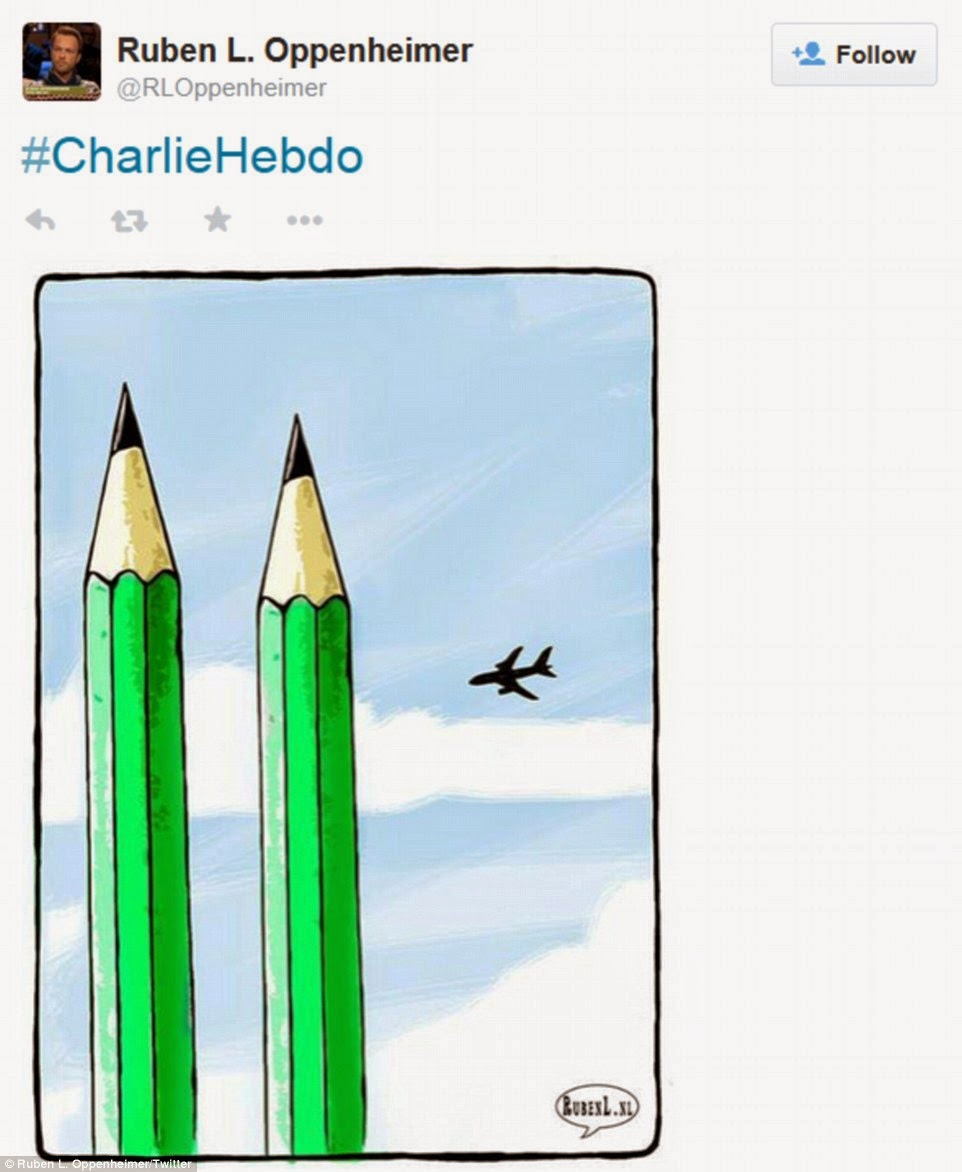Dying to Write
Are you prepared to die for what you write?
Because if you're a journalist you just might have to.
The terrorist attack on the offices of Charlie Hebdo in Paris is a game-changer, not just in terms of European security, but for writers and artists. 12 members of the magazine's staff died because of what they wrote and the cartoons they drew. Journalists are under attack everywhere: -
3 Al Jazeera reporters are in jail in Cairo in very poor conditions for reporting the news in Egypt.
James Foley and Steven Sotloff were beheaded by Isis in 2014
More than 17 Iraqi journalists have died in Syria in the past year.
And it's not just journalists - a blogger whose content doesn't go down well in Saudi Arabia has been sentenced to be publicly flogged. Would I be writing this blog if I risked that kind of punishment?
If you'd like to read a full discussion of the issues faced by journalists risking their lives in the middle east, please follow this link.
It has never been a more dangerous time to be a writer.
Salman Rushdie spent years of his life in hiding because of a Fatwa issued after he wrote Satanic Verses. This is what he has to say about Charlie Hebdo
"Religion, a medieval form of unreason, when combined with modern weaponry becomes a real threat to our freedoms. This religious totalitarianism has caused a deadly mutation in the heart of Islam and we see the tragic consequences in Paris today.
I stand with Charlie Hebdo, as we all must, to defend the art of satire, which has always been a force for liberty and against tyranny, dishonesty and stupidity.
‘Respect for religion’ has become a code phrase meaning ‘fear of religion’. Religions, like all other ideas, deserve criticism, satire, and, yes, our fearless disrespect."
How should we respond? Simon Jenkins in the Guardian puts it very well -
"Terrorism is no ordinary crime. It depends on consequence. It can kill people and damage property. It can impose cost. But it cannot occupy territory or topple governments. Even to instil fear it requires human enhancement, from the media and politicians.
That is why the most effective response is to meet terrorism on its own terms. It is to refuse to be terrified. It is not to show fear, not to overreact, not to over-publicise the aftermath. It is to treat each event as a passing accident of horror, and leave the perpetrator devoid of further satisfaction. That is the only way to defeat terrorism."
But I have no doubt that in the aftermath of Charlie Hebdo our governments will use it as an excuse to limit our personal freedoms even more. And all writers will be looking over their shoulders and thinking before they write - an act of self-censorship more potent than any law.
I've just watched the heart-breaking interview on French TV with the partner of the murdered editor of the magazine. It is deeply saddening.



Yes, it's the escalation of weaponry that I dread. The French police are already heavily armed, it'll be so tempting to increase this, here in the UK too.
ReplyDeleteAnd how easily the disaffected and suicidal can get hold of it. It shouldn't be so accessible.
Power to the pen, love and peace.
I echo that Carol.
DeleteSimply great post Kathy. I am with youall the way. wx
ReplyDeleteThank you Wendy - I do sometimes wonder if I'd have the courage to speak out if I risked my life for it. xx
Delete